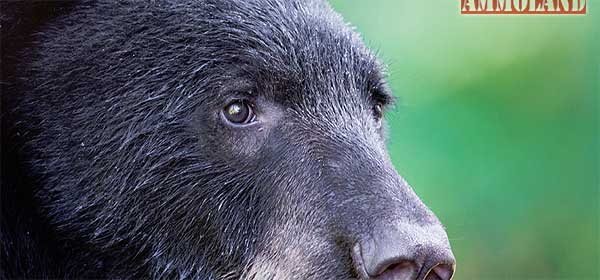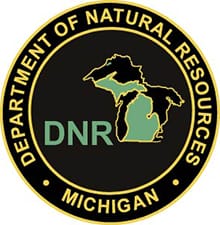Arraignment date set for Ottawa County man


Lansing, MI -(AmmoLand.com)- Michigan Department of Natural Resources wildlife biologists today said the recent illegal killing of a female black bear, which had three cubs with her, has aroused great public interest.
With the help of the public, DNR conservation officers were able to present a case to Oceana County Prosecuting Attorney Joseph Bizon. On Thursday, Bizon issued a warrant, charging a 27-year-old Ottawa County man with the unlawful taking of the bear.
Biologists said the cubs have a good chance of surviving on their own, but they would have been better off had the sow accompanied them through the rest of the fall and selection of a winter denning site.
“Fortunately, in this situation, these cubs were born in early 2015,” said DNR bear specialist Kevin Swanson in Marquette. “Cubs at this age can already be the size of some yearlings and they understand how to collect food for themselves.”
The bear killed Sept. 23 in the Ruby Creek area of Oceana County’s Colfax Township was an animal DNR biologists had been studying. It had blue tags in each of its ears.
“This sow was also radio-collared,” Swanson said. “We had been tracking her, and her young were of good size.”
Shooting a collared study bear is not illegal, but killing a female bear accompanied by bear cubs is.
Bizon said the name of the man charged in the warrant is being withheld pending his arraignment at 10 a.m. Oct. 14 in Oceana County District Court in Hart. On Saturday, the man turned himself in at the Oceana County Sheriff’s Department and was released after paying 10 percent of a $2,500 bond.
The charge is a misdemeanor, punishable by up to 90 days in jail, $1,000 in fines, $1,500 restitution and revoking of hunting privileges for the remainder of the year of conviction and three years subsequent.
“This incident involving the taking of an illegal bear during our bear season was the direct result of citizen involvement assisting our conservation officers with critical information that allowed for a rapid investigation and collection of evidence,” said Gary Hagler, chief of the DNR’s Law Enforcement Division. “Our officers benefit greatly when citizens take action coming forward with accurate and timely information related to fish and wildlife violations.”
Lt. John Jurcich of the DNR’s Cadillac office said expanding bear populations are of great interest in this area to hunters and non-hunters alike. In this case, the illegal taking of a sow with cubs that was frequently observed in the area by residents and had been the subject of research by the department, prompted residents to step forward with valuable information.
“The investigation revealed that the hunter who was licensed to hunt bear in the Baldwin Unit had prior knowledge of the sow with cubs coming into his bait location, based on trail camera photos of this very distinctive collared bear,” Jurcich said. “On the evening the bear was taken, information further indicates the hunter witnessed the cubs prior to his decision to take the bear with archery gear.”
Jurcich said investigating officers were told the bear was taken at a distance of 15 yards with a compound bow. The hunter registered the bear as required by law and DNR wildlife division staff recovered the radio collar at that time.
DNR officers recovered the cape of the bear during their investigation near Port Sheldon in Ottawa County. The carcass of the animal will be donated for food.
To report violations to the DNR, call the Report All Poaching (RAP) hotline at 1-800-292-7800, or use the RAP online form. Incidents may be reported confidentially. The RAP line is staffed 24 hours each day.
About the Michigan Department of Natural Resources:
The Michigan Department of Natural Resources is committed to the conservation, protection, management, use and enjoyment of the state’s natural and cultural resources for current and future generations.
For more information, go to www.michigan.gov/dnr.
